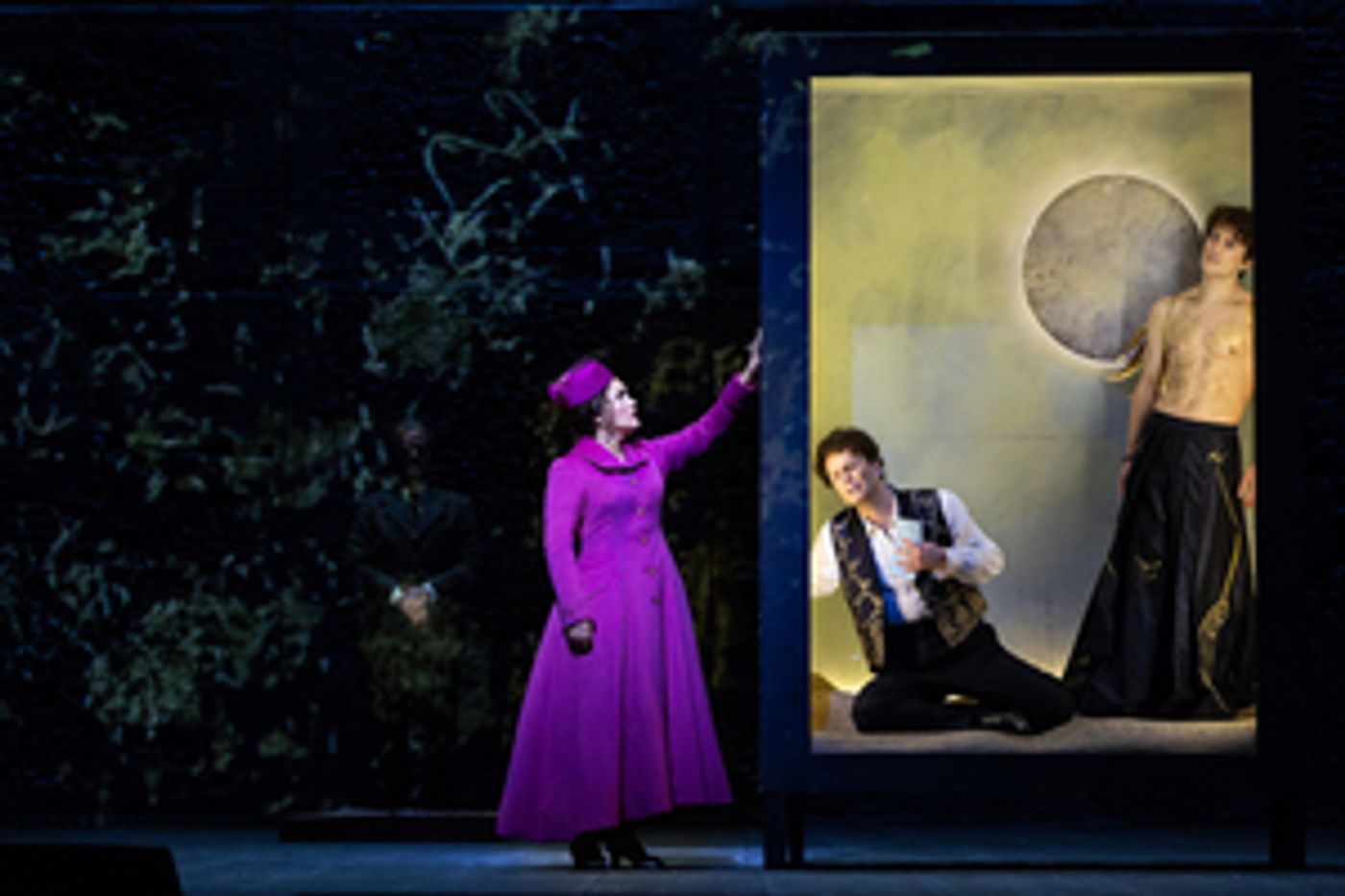Review: At the Met, EURYDICE Edges Out Orpheus for the Center of Attention in Premiere
Music by Matthew Aucoin and Libretto based on Sarah Ruhl’s Play of the Same Name

Photo: Marty Sohl/Met Opera
Talk about 'spoiler alerts,' there was a big one for me early in the opera, EURYDICE, by Matthew Aucoin to a libretto that he and Sarah Ruhl fashioned from her play of the same name, which had its Met premiere last night.
Eurydice tells Orpheus "Don't look at me," which to me mirrored the scene at the end of the piece in the Underworld when Hades tells him that he can take her back to the land of the living if he doesn't look back at her...which, of course, he does, even if it was an 'oops' minute.
Over the centuries, there have been dozens of operas on the Orpheus and Eurydice myth--you know, boy get girl, boy loses girl when she literally goes to hell, boy goes after her and gets her, but loses her because he doesn't have self-control, and nobody seems to win.
This time around, in EURYDICE, the new-ish opera (2020) by Mathew Aucoin and Sarah Ruhl (based on her perfect play, according to her at least), In this version, the balance of power is different, pulling toward Eurydice and, clearly, the pair aren't exactly a match made in heaven. He (baritone Joshua Hopkins) is consumed by music, she (soprano Erin Morley) in love with words and a little impatient with his predilections. You come to wonder exactly how they got together in the first place. ("Who is Eurydice and who am I?" Orpheus ponders early on.)
To boot, she has daddy issues, which first come to light on her wedding day, then grow when a mysterious man (in fact, Hades) delivers a letter from none other than her father, though he keeps its source and its being out of her reach. Next thing she knows--in the Mary Zimmerman production, with Daniel Ostling's sets with projections by S. Katy Tucker and lighting by TJ Gerckens, and Ana Kuzmanic's costumes--she's dead and on a long elevator ride to Hell, where she will lose her memory.
She meets her father but doesn't know him, having lost her memory. When she finds she has a chance to go back to the land of the living, she neatly forgets the bond she has made with this man--until she realizes she has hurt him.
What's the music like? Much of his charming/engaging/funny/and wonderfully musical score was gratifying to hear, switching gears quite often. But the composer was lucky to have his score in the hands of a cast who knew what to do with it, and, certainly, subtle hands of Yannick Nezet-Seguin and the wonderful musicians of orchestra who certainly deserved their solo curtain calls. At the same time, I found myself often distracted by some of the stage business, some built into the play, some from director Mary Zimmerman, to pay as much attention as I would have wanted to the orchestra. I also wished that the most aria-like pieces, some of the best music in the score, didn't come so near to the end of the opera.
Nonetheless, the cast showcased it properly. I didn't think the libretto drew Orpheus fully enough, but Hopkins' brought him to life in a way you wouldn't have thought possible, particularly when he was singing with his double, the striking countertenor Jakub Josef Orlinski (in his Met debut). Their pairing was quite remarkable, with their contrasting voices, even if it was not exactly clear why there were two of them. Hopkins' touching aria as he bids for his wife's return in Act III was remarkable.
Morley's Eurydice sang thrillingly, even when her role made her less than likeable; her big moment near the end of the opera she certainly made memorable. Tenor Barry Banks could have made dogs howl with the music that Aucoin gave to him, but was always in control. As Eurydice's father, bass-baritone Nathan Berg, also in his Met debut, sang in a voice filled with grief and heartbreak. I loved the comic business and music that the creators gave to the three stone guardians--Stacey Tappen, Ronnita Miller and Chad Shelton--who watch over the land of the dead in a most bureaucratic fashion.
I wonder if Matthew Aucoin will end up in the Underworld like Orpheus, fallen for his own version of Eurydice: his librettist (co-librettist?) Sarah Ruhl, who let her, perhaps, misbegotten faith in her writing let him make the opera less than it could have been. Still, I found myself drawn into it--and ready to hear it once again.
There are six more performances of EURYDICE at the Met, including the Saturday matinee on December 4, which will be broadcast as part of the company's "Live in HD" series to movie theatres around the globe. For more information, see the company's website. Visit your local theater website for the most up-to-date information related to their health and safety measures.
Reader Reviews
Videos

